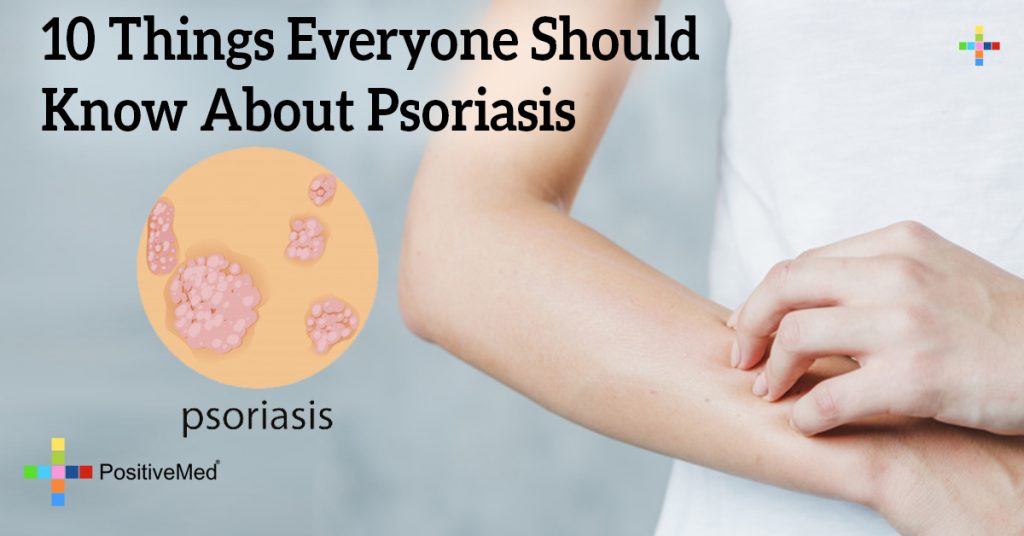
10 Things Everyone Should Know About Psoriasis
• Heredity
What causes psoriasis is still unknown. It has been observed that about 40 % of psoriatic patients have a family history. It can also be triggered by strep throat.
• Types of Psoriasis
There are five types of psoriasis, plaque, guttate, inverse, pustular and erythrodermic. Plaque is the most common type of psoriasis. People who have psoriasis often suffer from diabetes, heart disease, and depression.
• Autoimmune disease
Psoriasis is an autoimmune disease responsible for excess growth of skin cells and red, scaly patches on the skin. Inverse psoriasis occurs mainly in skin folds, armpits, groin, buttocks, behind ears, and under the breasts.
• Plaque psoriasis
The most common type is plaque psoriasis. Reddish patches occur on the skin covered by white silvery scale. These patches can occur on different parts of the body.

• Not Contagious
Psoriasis is a genetic disease and is not contagious. It does not transfer through contact to yourself or another person. .
• Salicylic acid
Salicylic acid is an over-the-counter medication that can be taken without a doctor’s prescription. It contains a substance which causes the outer layer of skin to peel away.
• Moisturizers
Moisturizers can be very useful while treating psoriasis. Applying moisturizer on the body can help treat and prevent psoriasis.
• Sunlight
Sunlight is the cheapest, simplest, and most effective treatment for psoriasis. Exposure to sunlight for about 10-30 minutes is recommended.
• Risk of Psoriasis Arthritis
There is a risk of developing psoriasis arthritis. About 15% of people suffering from psoriasis eventually develop psoriasis arthritis. The symptoms of psoriasis and chronic joint inflammation often develop separately for psoriatic arthritis patients.
• Psoriasis is not Rare
Psoriasis is likely to occur in both sexes equally, occurs at all ages, and is prevalent in 2-3% of the western population. There are several factors that aggravate psoriasis. Stress and excess alcohol are two of them.





